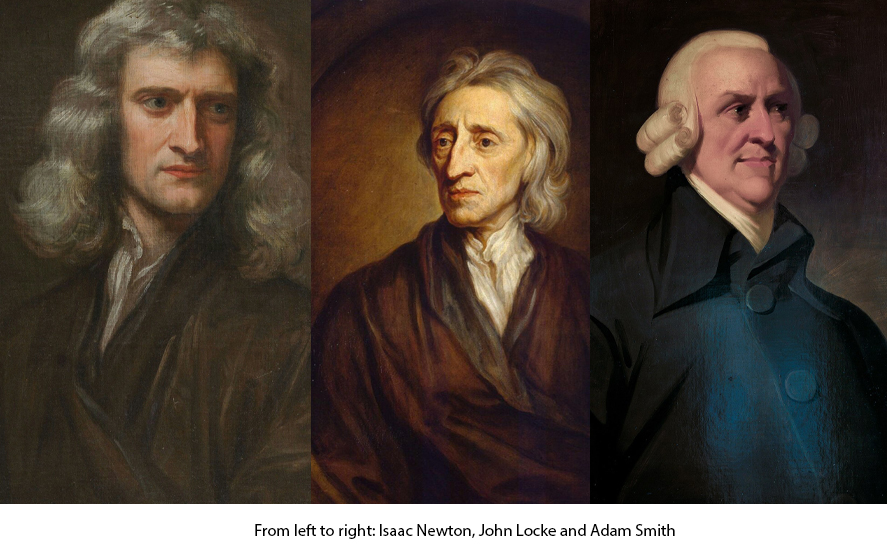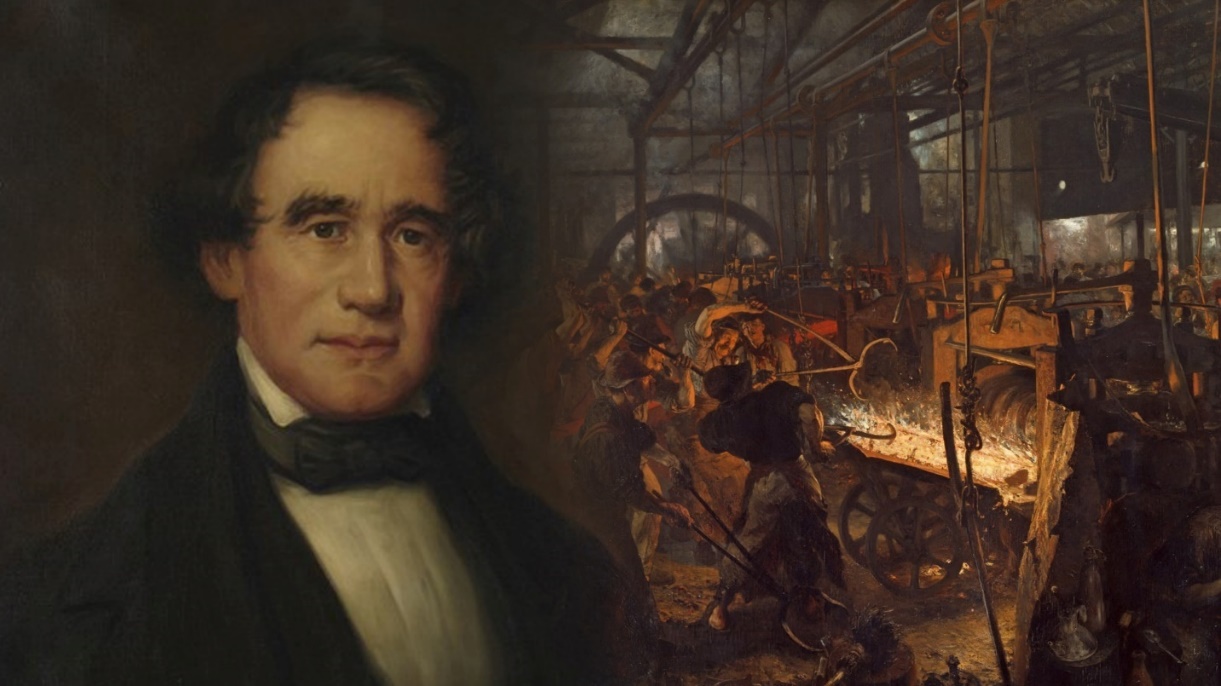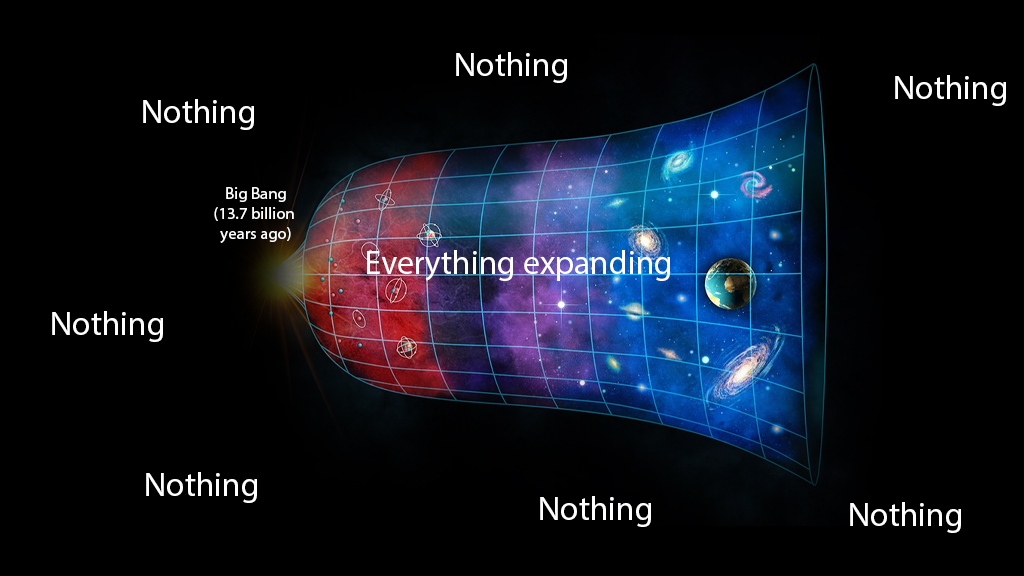Matthew Ehret
Just as Kepler attacked Aristotle, and just as Leibniz attacked both Locke, Aristotle, Descartes and Newton for the crime of denying the immortal soul to mankind, so too did Carey attack the system of Malthus and Ricardo on similar grounds.
This is part three of a five-part series. Part one is here and part two is here.
As Alastair Crooke recently observed in 'The World Doesn't Work That Way Anymore', the new school of political economy generated by philosophers like Adam Smith, John Locke, and Rousseau premised their systems of social management upon the "science" of Sir Isaac Newton. In his insightful essay, Crooke writes:
"The liberal order rests on three pillars - on three interlocking, co-constituting pillars: Newton's 'laws' were projected to lend the Anglo economic model its (dubious) claim to being founded in hard empirical laws - as if it were physics. Rousseau, Locke, and their followers elevated individualism as a political principle, and from Smith came the logic-core to the Anglo-American system: If each individual does what is best for him or her, the result will be what is best for the nation as a whole."
The concept of "forces" of the market-place premised itself upon hedonistic pleasure-seeking atomized creatures called humans which seek only to maximize pleasure and avoid pain. Attempting to project an image of scientific authority, this new liberal system situated its roots and even core assumptions upon the deeper oligarchical philosophic current stretching from Aristotle, Hobbes, Locke and Newton.
Once again, entire systems were assumed to be the sum of parts in zero sum games with individual elements of the machine (humans within a market place) competing with each other in a Hobbesian battle to maximize profit without any concern for the whole.
In his 1759 Theory of Moral Sentiments, Adam Smith is explicit on this last point saying of man and God:
" The administration of the great system of the universe... the care of all rational and sensible beings, is the business of God and not of man. To man is allotted a much humbler department, but one much more suitable to the weakness of his powers, and to the narrowness of his comprehension; the care of his own happiness, and that of his family, his friends, his country.... Nature has directed us to the greater part of these by original and immediate instincts. Hunger, thirst, the passion which unites the two sexes, the love of pleasure, and the dread of pain, prompt us to apply those means for their own sakes, and without any consideration of their tendency to those beneficent ends which the great Director of nature intended to produce by them."
This definition of a bestialized humanity would persist throughout all of Smith's writings including the 1776 Wealth of Nations and would also demand the existence of magical 'hidden hands' that acted like occult forces to generate creative wealth whenever the sum total of hedonistic urges were kept unbounded in an unfettered marketplace.
Throughout the 19th century, in opposition to the explosions of scientific discoveries that empowered humanity to leap beyond the limits to growth the closed system thinking of Thomas Malthus, David Ricardo and other imperial "thinkers" continued to promote the notion of an uncreative universe bounded by absolute limits and thus subject to laws of diminishing returns as population levels increased (1). Such thinkers asserted that God created the human species so incompetently that he forced the elites periodically cull useless eaters to solve overpopulation.
The Anglican Reverend Thomas Malthus (1766-1834) was most explicit in this view. Writing in his first edition of the 1799 Essay on the Principle of Population, Malthus says:
"We should facilitate, instead of foolishly and vainly endeavoring to impede, the operations of nature in producing this mortality; and if we dread the too frequent visitation of the horrid form of famine, we should sedulously encourage the other forms of destruction, which we compel nature to use. In our towns we should make the streets narrower, crowd more people into the houses, and court the return of the plague."
A little later, Malthus even argued for the early extermination of poor babies who were of low value to society when he said:
"I should propose a regulation to be made, declaring that no child born from any marriage taking place after the expiration of a year from the date of the law, and no illegitimate child born two years from the same date, should ever be entitled to parish assistance... The infant is, comparatively speaking, of little value to society, as others will immediately supply its place."
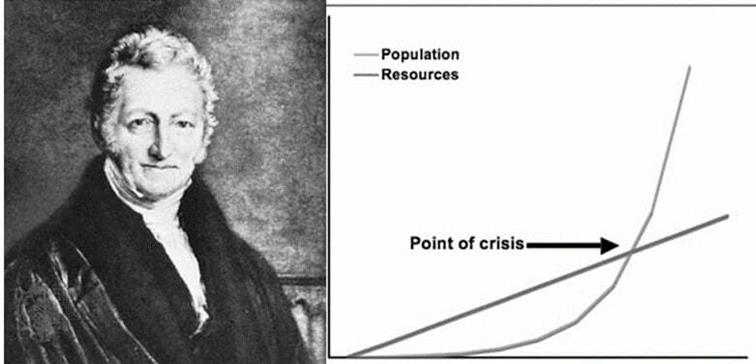
Thomas Malthus and the geometric ratio which he supposedly "discovered" proving that agriculture grows arithmetically while human populations grow geometrically
Among the opponents to this satanic current of thought rampant among the European oligarch class which Malthus served, the American intellectual tradition of Christian humanism had found one of its strongest champions in the person of the great economist Henry C Carey (1793-1879).
Carey's Leibnizian Economy vs Malthus' Dismal Science
Throughout his 40 years of published works and political organizing inside the USA and internationally, Carey (who went on to become a leading advisor to Lincoln during the Civil War) recognized that limits to population growth potential could always be changed by encouraging advanced rates of progress in opposition to the Malthusian genocidalists of the British Empire.
Reflecting the essential dispute between Leibniz and Newton 150 years earlier, Carey eloquently exposed the Malthusian fraud in his Unity of Law: As Exhibited in the Relations of Physical, Social, Mental and Moral Science (1872):
"Mr. Malthus was led to invent a law of population by means of which to relieve the rich and powerful from all responsibility for the existing state of things; giving them assurance that the poverty and wretchedness by which they were everywhere surrounded had resulted from the fact that the Creator had sent upon the earth large numbers of people for whom He had provided no table at which they might be allowed to eat, no materials by aid of which they might be clothed; thus furnishing the theory by aid of which subsequent writers have been enabled, as they supposed, to prove that, in the British Islands, man had become "a drug" and "population a nuisance".
Following the Leibnizian current that saw an economy of nature itself to constantly renew itself with creative progress without limit, Henry C. Carey outlined a system of infinite perfectibility within his two most influential works: Unity of Law and Harmony of Interests.
Leading 19th century American System statesman Henry C. Carey
Just as Kepler attacked Aristotle, and just as Leibniz attacked both Locke, Aristotle, Descartes and Newton for the crime of denying the immortal soul to mankind or wisdom to God the creator, so too did Carey attack the system of Malthus and Ricardo on similar grounds. Carey noted that God must be assumed to be either irrational, non-existent or outright evil to have created a species so defective that it must be periodically culled by an elite class to keep them "in balance" with the mathematical equilibrium of nature.
Carey recognized that these Malthusians denied the principled character of humanity which distinguished our species as above all other known species of the biosphere: The power to make qualitative, willful discoveries and transform our relationship with the entire universe. This is a power that is both expressed individually, and efficiently across multiple generations. Among the most essential of these effects is the power to create more energy than we consume over time, which no watch or machine can accomplish. Carey wrote about the interconnectedness of the 1) powers of mind to 2) the powers of nature:
"The more his power of association, the greater is the tendency toward development of his various faculties; the greater becomes his control of the forces of nature, and the more perfect his own power for self-direction; mental force thus more and more obtaining control over that which is material, the labors of the present over the accumulations of the past..."
Carey recognized that political economy as a highest of both the arts and sciences was slowly emerging into human thought, and he know that this power of coordinating humanity towards coherent goals carried with it a great power for destruction and abuse if oligarchists of a Malthusian persuasion were to capture the levers of its influence. Carey outlined his understanding of this new science in the following passage:
"Political economy, as now taught, is in a position closely correspondent with that occupied by Astronomy before the days of Copernicus, Kepler and Galileo. There, too must it remain until its professors shall qualify themselves for furning answers to the simple question- whence comes the idea of value? And of what does value consist?"
Where Carey and his collaborators placed value on the power of human creative thought which gives the human species a unique power and duty to leap beyond the limits to growth in the process of acting as co-participants of universal creation, his enemies saw value in the worshipping of money and acquisition of property (which included other people).
In order to counteract the optimistic spread of this science of political-economy as understood by Carey and his co-thinkers around the world during the later half of the 19th century, much effort made to re-enforce the closed Newtonian system and its Malthusian corollaries to a new science that came to be dubbed "entropy". (2)
The Origins of an Entropic Idea
Taking the legitimate discoveries of the French scientist Sadi Carnot (1786-1832) whose work on heat powered steam engines and thermodynamics revolutionized industrial engineering and design, certain mathematicians saw in Carnot's work a viable model upon which the entire universe and human nature could be described.
So what did Carnot "discover"?
Carnot began with the obvious fact that all machines can be treated as closed systems with parts that move when fuel is burned and heat created. The heat makes all parts of the machine move towards a designed effect. Carnot observed that any heat-powered machine will always burn more energy than is created over time, and that this heat will always move irreversibly from hot to cold until a state of "thermodynamic equilibrium" is attained. At this point the machine operator must add more fuel or else the system will not return to life.
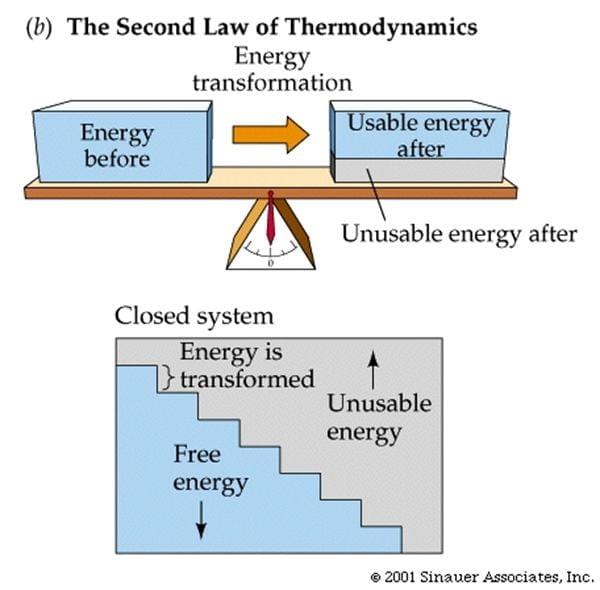
This is perfectly reasonable for any closed system. The problem arose when certain mathematicians decided to take this localized phenomenon and extend it to the whole of creation as a law which was presumed to bound ALL of space and time.
The personality who did the most to popularize the notion that the entire universe, like Newton's clock, was irrevocably destined to "wind down" into a heat death of total entropy was Rudolph Clausius (1822-1888). In an 1865 treatise which popularized what became "the 2nd Law of thermodynamics" (aka: entropy), Clausius wrote of the two constants shaping the dead universe:
"If for the entire universe we conceive the same magnitude to be determined, consistently and with due regard to all circumstances, which for a single body I have called entropy, and if at the same time we introduce the other and simpler conception of energy, we may express in the following manner the fundamental laws of the universe which correspond to the two fundamental theorems of the mechanical theory of heat.
- The energy of the universe is constant. The entropy of the universe tends to a maximum."
In Clausius' theory, the universe became co-equal to a heat-powered machine which was assumed to be a closed system bounded in space and time with a limited amount of energy to sustain all moving parts contained within it. Thus, the more moving parts existed burning this limited energy sustaining this machine, the inevitable reduction of energy was available to sustain the system as a whole. States with "low entropy" were presumed to exhibit high potential for change, while states of "high entropy" had low potential for change. A simple example of a system's change from low to high entropy could be seen during the first moments of a spray can placed in a fire pit within a large room. The gas molecules increase in speed as the heat and pressure increase.
The can explodes.
In that first split second, there is minimum entropy because there is a maximum amount of activity animating all gas particles. With every passing second, the molecules cool and slow down as they spread across the large room and slowly settle to resting positions. When all heat has dissipated and particles have settled, we have arrived at the state of maximum entropy where nothing new will ever happen. The "end of history" of the molecules has been reached.
The application of this model to the universe in the mid-20th century gave rise to the Big Bang Model which took a naïve reading of extra galactic red shifts/blue shifts and posited that the entire originated in single "point" of zero volume 13.7 billion years ago. Before this imagined "moment" there was nothing and all existence has been expanding from that time into an infinite expanse of nothing. Once this expansion has ended, it can then also be presumed that an infinite nothingness will return forever. Depressing and irrational yes, but if you happen to be an existential nihilist looking for a reason to avoid using your conscience, then it may appear to be a warm comfort blanket.
One particularly notable mathematician who jumped on the nihilistic bandwagon with a zealousness usually reserved for religious fanatics was young Cambridge Apostle named Lord Bertrand Russell (1872-1970).
In part four of this series, we will see how Bertrand Russell became a high priest of a new religion of entropy as the fundamental immutable law of social, physical and economic science. In that location we will see how Russell's acolytes used his Principia Mathematica (published between 1910-1913) to set the stage for a new science of managing humanity as a if the species and all creation were merely closed system computers within computers. The name of this new pseudo science was "cybernetics" and from its poisonous soil grew such ideologies that hid their evil assumptions behind the veneer of moral virtues. Some of these dominant systems were dubbed "transhumanism", "ecologism", "information theory" and "systems analysis".
